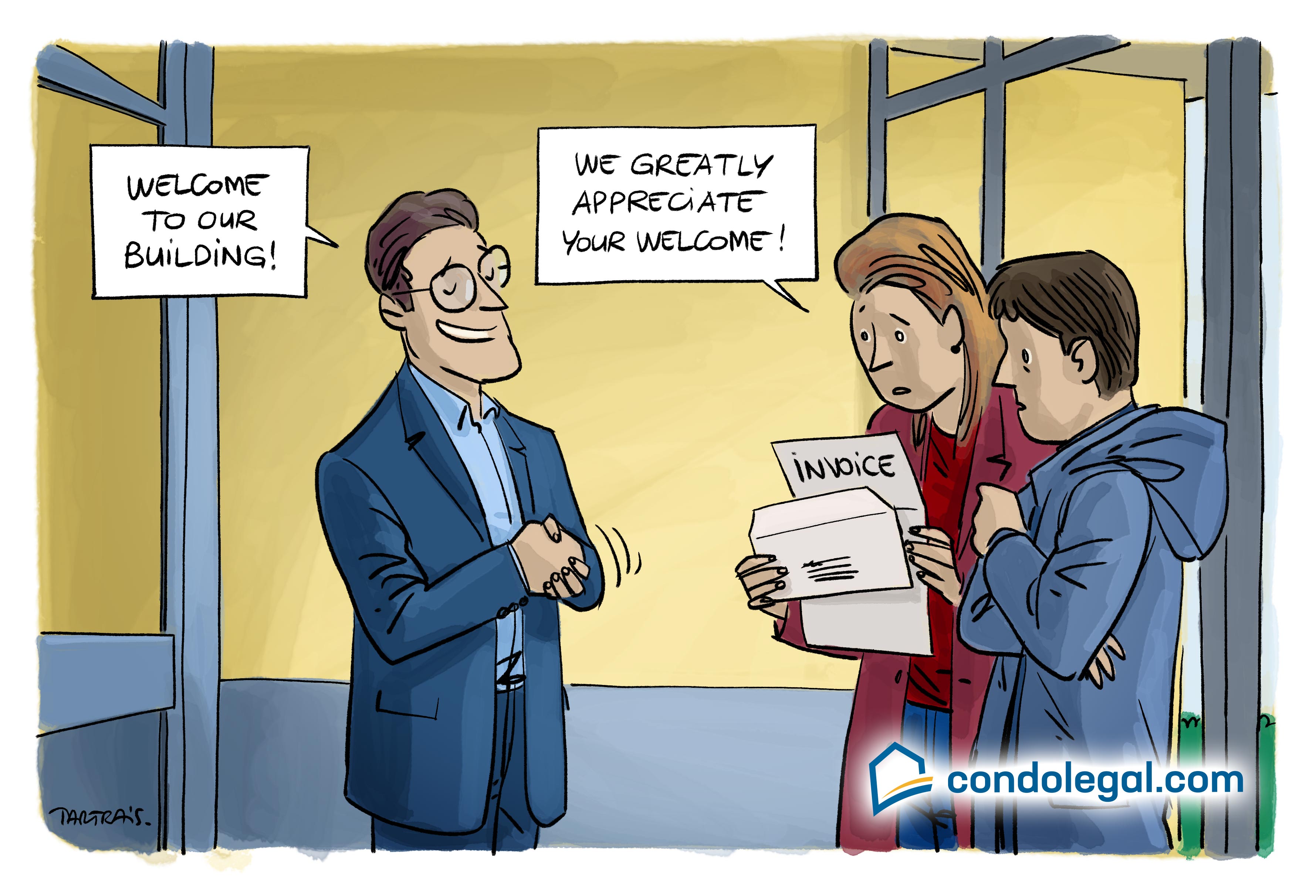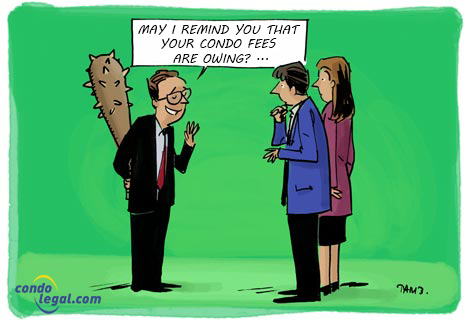 Common expenses (condo fees) must be paid by any co-owner. If they don't pay, they are considered "in default". The management of unpaid common expenses in co-ownership is a complex subject, often a source of concern for both syndicates and buyers. Indeed, the latter may find themselves responsible for the common expenses unpaid by the previous co-owner. Article 1069 of the Civil Code of Quebec plays a key role in defining the responsibility of the new co-owner with respect to arrears of common expenses.
Common expenses (condo fees) must be paid by any co-owner. If they don't pay, they are considered "in default". The management of unpaid common expenses in co-ownership is a complex subject, often a source of concern for both syndicates and buyers. Indeed, the latter may find themselves responsible for the common expenses unpaid by the previous co-owner. Article 1069 of the Civil Code of Quebec plays a key role in defining the responsibility of the new co-owner with respect to arrears of common expenses.
Conditions of implementation
Article 1069 of the Civil Code of Quebec makes the purchaser of a fraction, including the purchaser following the exercise of a hypothecary remedy, liable for the arrears of the former co-owner's common expenses as well as for interest.
A potential buyer of a fraction of a co-ownership has the right to request from the syndicate of co-owners a statement of the unpaid common expenses concerning this fraction. In response, the syndicate is entitled to provide the owner of the fraction or his or her legal representatives with prior notice. The statement of unpaid common expenses provided by the syndicate is adjusted according to the most recent annual budget.
The future buyer is then responsible for the payment of these charges only if the syndicate provides him with the said statement within 15 days of his request.
Seller's Liability
When a unit is sold, the seller ceases to be responsible for the common expenses due after the sale, with the responsibility falling on the new co-owner. However, he is still liable for unpaid common charges while he was the owner.
Buyer's Liability
Article 1069 of the Civil Code of Quebec states that the purchaser of a condominium unit is liable, including interest, for all common expenses due at the time of acquisition. This action does not create a right in rem or a right to follow over the fraction of co-ownership.
Consequences for the purchaser
The claim for unpaid arrears remains and can be claimed from the new purchaser. In addition, the new co-owner could have his or her vote suspended, under article 1094 of the Civil Code of Quebec, if the previous co-owner's default has not been remedied.
Mortgage Creditor's Liability
A creditor who becomes a co-owner as a result of a recourse relating to the exercise of a hypothecary right must pay the common expenses related to the unit.
Consequences for the mortgagee
When a co-owner fails to pay the common expenses, this results in the suspension of his or her voting rights as well as those of his or her mortgagee, in the event that he or she has transferred his or her voting rights to the latter. Indeed, a creditor cannot benefit from more rights than the defaulting co-owner. For this reason, the majority of declarations of co-ownership impose on the syndicate the obligation to notify any late payment to the mortgage creditor concerned.
Responsibilities of heirs
After the death of a co-owner, the deceased's property is the undivided property of his or her heirs. It is therefore they who, in principle, must pay the common expenses relating to the fractions which were the property of the deceased. The heir of a fraction is personally liable for the payment of the common expenses unpaid by the deceased, provided that he accepts the legacy.
Legal hypothec of the syndicate
Article 1069 of the Civil Code of Québec does not give priority to the syndicate's legal hypothec or grant it an advantage in the order of collocation for the division of the proceeds of the sale, when the syndicate exercises its hypothecary right to sell the property under judicial supervision. However, if the property is sold as a result of a mortgage remedy, the syndicate has the option of issuing a new notice of mortgage to secure the payment of the outstanding common expenses, giving rise to a new mortgage.
 WHAT YOU SHOULD KNOW ! Article 1069 of the Civil Code of Québec clearly defines the buyer's liability to the syndicate with respect to arrears of common expenses, under certain conditions. This section provides a personal remedy to the syndicate against the purchaser of the fraction, but does not create a right in rem or a right to follow in the fraction.
WHAT YOU SHOULD KNOW ! Article 1069 of the Civil Code of Québec clearly defines the buyer's liability to the syndicate with respect to arrears of common expenses, under certain conditions. This section provides a personal remedy to the syndicate against the purchaser of the fraction, but does not create a right in rem or a right to follow in the fraction.
 WHAT TO KEEP IN MIND : Article 1069 of the Civil Code of Québec does not give priority to the syndicate's legal hypothec in the order in which the sale price is shared in a sale under judicial supervision. However, the syndicate's claim for unpaid arrears remains and can be claimed from the new purchaser.
WHAT TO KEEP IN MIND : Article 1069 of the Civil Code of Québec does not give priority to the syndicate's legal hypothec in the order in which the sale price is shared in a sale under judicial supervision. However, the syndicate's claim for unpaid arrears remains and can be claimed from the new purchaser.
 WARNING ! Before finalizing a sale, it is essential for a promisor-buyer to check the statement of account for an adequate distribution of unpaid common expenses between the seller and the buyer.
WARNING ! Before finalizing a sale, it is essential for a promisor-buyer to check the statement of account for an adequate distribution of unpaid common expenses between the seller and the buyer.



